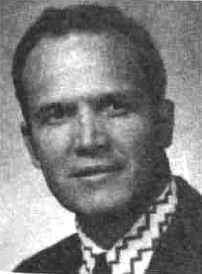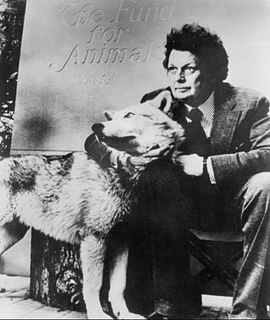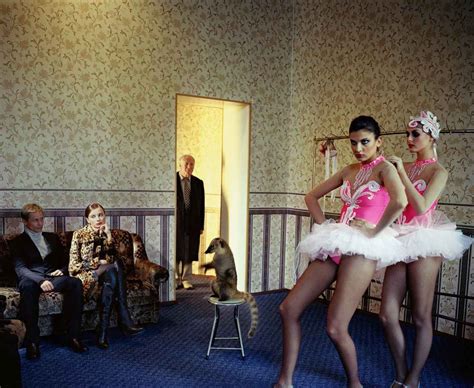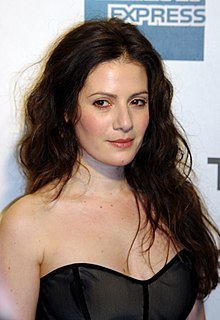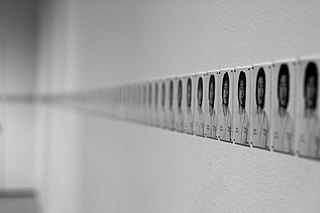A Quote by Henry David Thoreau
You must not count much upon what I can do or learn in New York.... Everything there disappoints me but the crowd; rather, I was disappointed with the rest before I came. I have no eyes for their churches, and what else they find to brag of. Though I know but little about Boston, yet what attracts me, in a quiet way, seems much meaner and more pretending than there,--libraries, pictures, and faces in the street. You don't know where any respectability inhabits.
Related Quotes
I remember my mother saying to me on one occasion, 'Mel, I know that I can count on you.' I resolved that she would always be able to count on me. I would not let her down. I loved her too much. Her confidence in me meant everything. Today I still feel that way. I feel that way about the Brethren. I don't ever want to let President Hinckley or any of the other leaders of the Church down. But, even more important, I never want to let the Savior down, because I love Him more than anything else.
It used to be said that, socially speaking, Philadelphia asked who a person is, New York how much is he worth, and Boston what does he know. Nationally it has now become generally recognized that Boston Society has long cared even more than Philadelphia about the first point and has refined the asking of who a person is to the point of demanding to know who he was. Philadelphia asks about a man's parents; Boston wants to know about his grandparents.
...when it comes down to making work that really sings, I don't know if I can teach any of it. I don't even know if I can do any of it half the time. It's so much about failure, it's so much about making pictures that are so utterly boring and overstated, you're endlessly disappointed. And in that process you hopefully find something that draws you back and calls to you.
As far as change, anyone from the age of 13 to 19, you become a whole new person because you grow up. There was so much that I didn't know or that I thought I knew because I was just a 13-year-old at the time who thought I knew everything. But I realized very quickly that, no, there's so much about everything that I don't. So what I've at least tried to do is accept that I don't know everything. Life is so much more fun that way. And it's easier. I've just been trying to learn, rather than to pretend that I'm perfect.
But I'd rather help than watch. I'd rather have a heart than a mind. I'd rather expose too much than too little. I'd rather say hello to strangers than be afraid of them. I would rather know all this about myself than have more money than I need. I'd rather have something to love than a way to impress you.
From the night Buddy Willard kissed me and said I must go out with a lot of boys, he made me feel I was much more sexy and experienced than he was and that everything he did like hugging and kissing and petting was simply what I made him feel like doing out of the blue, he couldn’t help it and didn’t know how it came about. Now I saw he had only been pretending all this time to be so innocent.
Little wonder that we. . .find the old pictures of openness - pictures usually without any blur, and made by what seems a ritual of patience - wonderful. They restore to us knowledge of a place we seek but lose in the rush of our search. Though to enjoy even the pictures, much less the space itself, requires that we be still longer than is our custom.
Labels don't mean much to me one way or another -- except when they close the minds of potential readers. I'd much rather we do away with genres and simply file everything under fiction. I know it can work -- one of my favourite record stores (Waterloo Music in Austin) simply files everything alphabetically and no one seems to have much problem finding what they're looking for.
They say a man doesn't know himself until he faces death for the first time. . . I don't know about that. It seems to me that the person you are when you're about to die isn't as important as the person you are during the rest of your life. Why should a few moments matter more than an entire lifetime?
It's different," you said. "You've made, Min, everything different for me. Everything's like coffee you made me try, better than I ever - or the places I didn't even know were right on the street, you know? I'm like this thing I saw when I was little, where a kid hears a noise under his bed and there's a ladder there that's never been there before, and he climbs down and, it's for kids I know, but this song starts playing..." Your eyes were traveling in the treey light.
A lot of the reason I left New York, in addition to being so broke, was that I just felt I was becoming provincial in that way that only New Yorkers are. My points of reference were really insular. They were insular in that fantastic New York way, but they didn't go much beyond that. I didn't have any sense of class and geography, because the economy of New York is so specific. So I definitely had access and exposure to a huge variety of people that I wouldn't have had if I'd stayed in New York - much more so in Nebraska even than in L.A.
I know I am a human being. I can give myself to one year for a project. That is why I say I'm primitive in the way I work, especially compared to most artists. I came to New York in 1974, knowing that it is the art center of the world. But I didn't go to find people for my work. I do the work, and the people come to me, and I learn from them. That has always been my approach - to do the job first and then to respond to it after I finish and learn what people think about it. That's how I develop, and I'm more of an outsider in that way.

